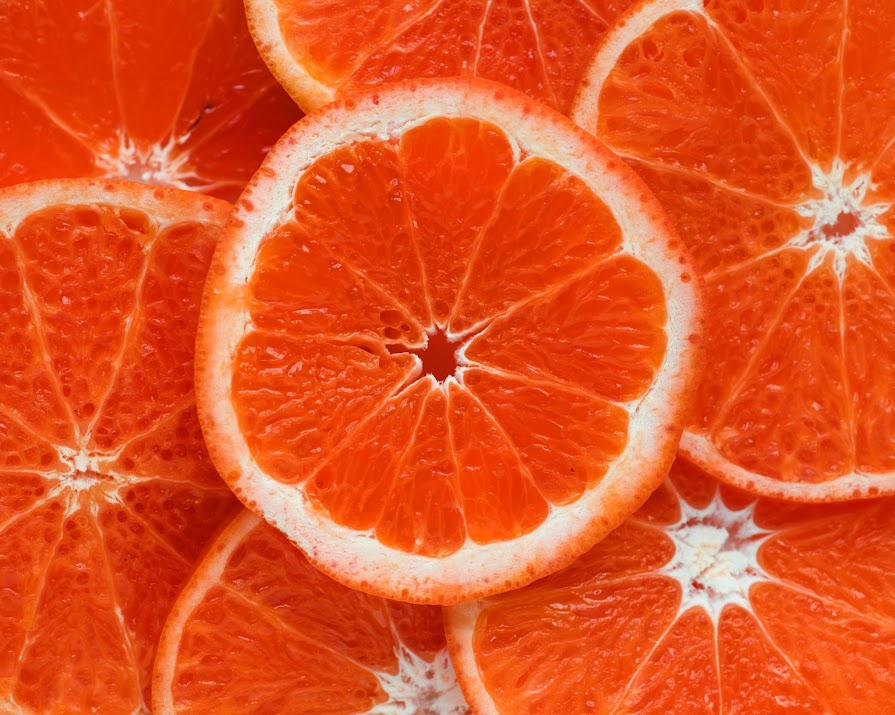By Geraldine Carton
09th May 2018
09th May 2018
In the last couple of months, I’ve found myself feeling increasingly frustrated with the level of bloat going on in my belly. I’m generally slim and have a relatively healthy diet, but every morning I find myself waking up with a bulge so big it could challenge that of a pregnant woman. An overdue pregnant woman. An overdue pregnant woman about to give birth to twins.
At the beginning I ignored the affliction, brushing the bloat off as insignificant, and trying to view my little pouch as “cute” and cherub-esque. However my bloating belly has been increasing at a small but steady pace, and now when I go to look in the mirror all I see is a protruding paunch and a frustrated face, and I want both gone.
As such, I’ve decided to take a deep-dive through the world of biology and nutrition with the aim of investigating whether any of these widely-hyped natural remedies do actually “beat the bloat”. I’ll be spending the next week giving all of the below a go, from the Epsom baths to the morning shots of ACV, and all in the name of journalism… and, let’s be real here, vanity.
Here’s hoping that when the time comes to write that report, I’ll have some fool-proof bloat-hacks to share, and I’ll be smugly patting my bloat-free belly as I share them.
1. Up the water
Drink two to three litres of water a day. When the body does not get enough fluids, it starts to retain water to prevent dehydration. Drinking water also prevents constipation, which is said to be another cause of a protruding belly. Fruits and vegetables are also a great way of upping your water intake, with the likes of watermelon, celery, grapefruit, and cucumbers being particularly good in this regard.
2. Reduce the salt
A key trick to beating the bloat apparently comes down to a favourite taste of mine: salt. Food high in salt (sodium) add to the aforementioned water-retention problem, which contribute to heavy bloating. Highly processed foods and ready-meals tend to be high in sodium and low in fiber, a combination which does bloated bodies no favours. You’re better off sticking to homemade whole foods and throwing all salt shakers into a nearby incinerator.
3. “Careful now” with the beans, pulses and gas-inducing veg
“Beans beans, the magical fruit…” – there’s no need to finish off that rhyme. It’s no revelation that beans and legumes can often make us gas, but what you might not know is that this all comes down to their high fiber content and the fact that the body actually can’t digest these foods effectively, especially when they aren’t cooked properly. It’s this small detail that is responsible for much of the gas and bloating that we sing about today. The same goes for cruciferous vegetables, such as broccoli, brussels sprouts, and cauliflower.
That’s not to say that you should give up on these nutritious, high-fiber foods, but if you think they could be messing up with your tummy, reign them back them until you stop feeling the gassiness. From then you can start building back your body’s tolerance at a gentle level. You can also try cooking them with some spices like coriander, cumin turmeric and cardamom (as is the traditional way to cook these foods in India), which are said to give support to the body’s digestive system.
4. Bitter is better
The atomic composition of lemon juice is incredibly similar to our stomach’s digestive juices, which is why it’s such a great reliever of indigestion and bloating. With this in mind you’ll do your body wonders by squeezing some lemon juice to your glass of water on a regular basis, as this will help your body to move things along faster and eliminate unwanted toxins which – you guessed it – can be responsible for the bloating.
Fresh ginger is another go-to remedy for most belly-related woes; from gas to nausea and everything in between. Adding half a teaspoon of freshly chopped ginger to that lemon-y water will double up on the gut-calming goodness.
5. Vino is a no-no
Alcohol is considered to be an irritating, inflammatory substance which causes inflammation to the gastrointestinal lining of your gut and contributes to an increase in “gastro intestinal permeability”, also known as leaky gut syndrome. If you (like me) enjoy a glass of red with dinner, the reality is that your stomach lining isn’t getting the chance to recover on a daily basis, and this is why it has become more sensitive, irritated, inflamed and bloated.
6. ACV
Knocking back a tablespoon of apple cider vinegar mixed in with some warm water each morning is said to be a great way to kickstart the body’s digestive system, all while reducing inflammation. According to registered dietitian and co-founder of Being Healthfull, Claire Martin, taking a dose of ACV before meals helps correct your stomach environment before you begin to eat, and can help to reduce later bloating.
7. Minty fresh is best
Peppermint, whether it be in tea or capsule form, can be a great relaxer for the digestive tract and boosts normal peristalsis in the gut. What makes it an effective de-bloater comes down to the fact that it’s supposed to calm the stomach muscles, improve bile flow (which the body uses to digest fats) and it contains methanol, an ingredient that keeps things moving in our digestive system.
8. Get fruity
As far as bloating goes, Mother Nature has it all sussed; providing a bounty of fruits that can help to beat the bloat when we find ourselves in need of a sugar hit. Here’s a quick rundown on what’s best:
Melons: Melons act as a natural diuretic, which means they help flush out excess water and salt from your body.
Bananas: Monkeys must be in-the-know as far as the bloat-beating power that bananas wield. Bursting with potassium and fibre, bananas help to regulate your body’s sodium intake, and sodium, as we all by now, is a bloater’s worst enemy.
Pineapple: Pineapples are great for de-bloating because they contain the digestive enzyme bromelain which helps break down proteins which, when left undigested, can lead to stomach discomforts. Note: core of the pineapple has the highest concentration of bromelain
9. Potassium
The more salt you consume on a given day, the more potassium-rich foods you should eat to counter its effect. As already mentioned, bananas are a super source of potassium, but alongside them are asparagus, citrus fruits, melon and tomatoes. Bulk up on these to make the bloat go down.
10. Reduce the fizz
The bubbles in carbonated drinks can cause air and gas to get trapped in your tummy, which causes said tummy to rise like a phoenix. Even fizzy water can cause havoc on your insides so always try to opt for still water instead.
11. Epsom salts
Eating salt is bad, but bathing in salt is good, apparently. Running a hot bath and adding some Epsom salts is said to draw out the body’s toxins, help to balance the hormones and leaves you feeling relaxed and ready for a good night’s sleep, all of which contributes to a happy, healthy digestive tract.
12. Less stress more success
Stress and anxiety can be an incessant culprit for bloating, caused by malfunctioning digestion. This is because when you’re feeling anxious or stressed, the part of the brain that handles digestion actually stops working. Mad, but true. Stress upsets hormone and neurotransmitter balance, which results in foods being poorly digested and leads to an overproduction of gas and, yep, bloating.
Making a conscious effort to manage your stress could be all that’s needed to calm your core, so it’s worth thinking about some effective strategies. Exercise is supposed to help, even if it’s just a twenty-minute walk around the block in the evening, or a bedroom boogie to some timeless classics. Mediation also supposedly does wonders.
13. Check for allergies
While all the above have been found to help individuals and reduce their tummy’s bloating tendencies, it might be more complicated than that. Food allergies and intolerances can cause gas and bloating, with the most common being dairy and gluten. However, before you go culling your cupboards of cheese and chocolate, be sure to pay a visit to your GP and take a food allergy test. Self-diagnosis really can leave you with more troubles than you started with.
14. It’s not just about what you eat, but how you eat it
It’s easy to find yourself wolfing down food mouthful by mouthful when you’re in a rush or when you’re famished, but this fast-food approach to eating can be a major culprit for the onset of serious bloating. It’s worth your while to try and approach meal times with a touch of reverence and mindfulness as you pay attention to what you’re eating and take the time to chew slowly. Not only can this aid digestion but it’ll leave you a more satisfied, less gassy version of your pre-meal self.























